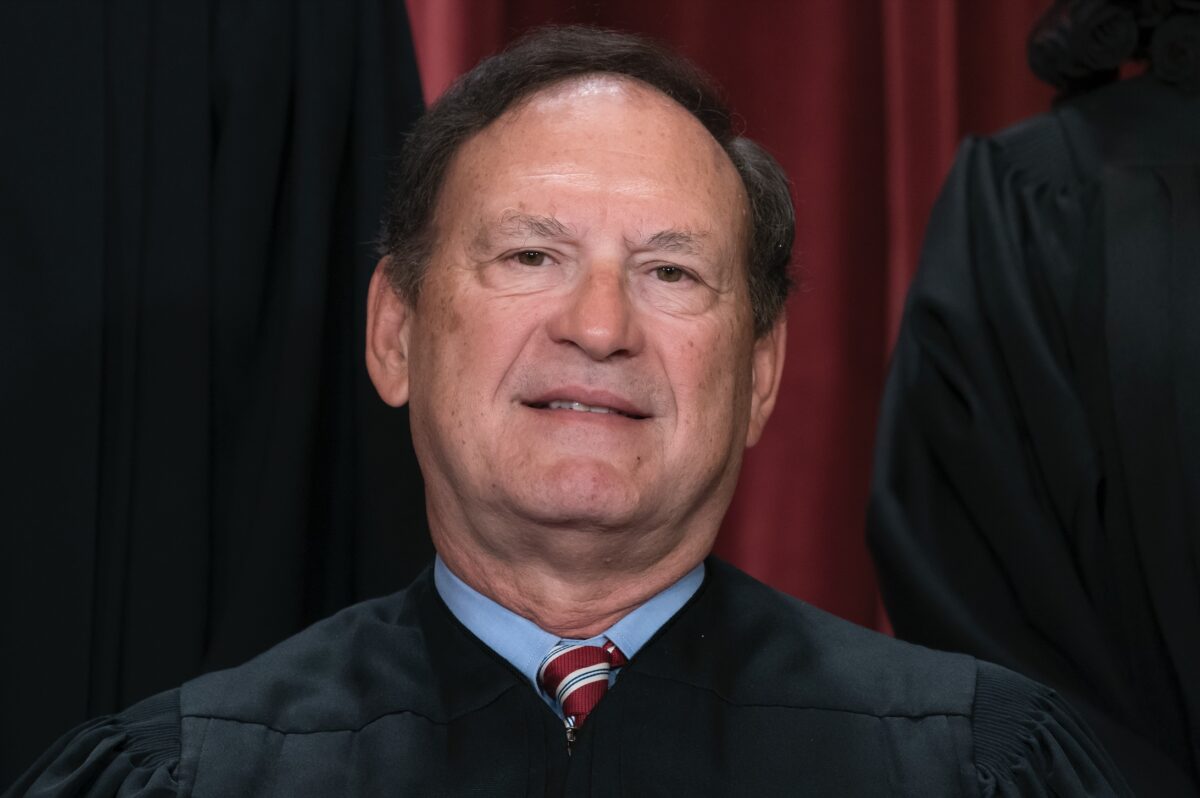ProPublica Editor Blasts the Wall Street Journal for Running Op-Ed By Justice Alito, WSJ Fights Back With Scathing Editorial

AP Photo/J. Scott Applewhite
The fight is on between The Wall Street Journal and ProPublica over the latter’s deep dive investigation of alleged ethical violations by Supreme Court Justice Samuel Alito.
On Tuesday, ProPublica published a report about a 2008 fishing trip Alito had in Alaska with conservative megadonor Paul Singer, who also paid for the private jet on which Alito flew out. The report noted that Alito didn’t report the luxurious trip on his annual financial disclosures, and he didn’t recuse himself years later when Singer’s hedge fund had cases before the Supreme Court.
Alito’s spokesperson told ProPublica that the justice wouldn’t comment on the story, but hours before the story was released, The Wall Street Journal published an op-ed Alito wrote to preemptively rebuke the criticisms from ProPublica. This development was criticized by numerous observers. ProPublica editor in chief Stephen Engelberg criticized the Journal in comments to the New York Times.
“We were surprised to see Justice Alito’s answers appear to our questions in an opinion essay in The Wall Street Journal, but we’re happy to get a response in any form” Engelberg said. “We’re curious to know whether The Journal fact-checked the essay before publication. We strongly reject the headline’s assertion that ‘ProPublica Misleads Its Readers,’ which the piece declared without anyone having read the article and without asking for our comment.”
The WSJ editorial board published a new op-ed on Wednesday denouncing ProPublica’s story as a “fishing expedition,” a “non-scandal,” and a “political assault on the Supreme Court.” The op-ed point out that Alito spoke about his trip with Singer at a Federalist Society function years ago, and they defended his ethics by saying his non-disclosure didn’t break the rules at the time.
From the piece:
Regarding ethics, the story flatly asserts that Justice Alito violated disclosure rules, but he did not. At the time of the trip, the Justices were authoritatively advised that such “personal hospitality” wasn’t reportable. Ray Randolph, a federal appellate judge who was on both trips, says he asked the judiciary’s disclosure office whether to report the trip on his 2005 form. Backed by his notes taken at the time, Judge Randolph said he was told he did not have to disclose.
This spring the Judicial Conference changed its rules to note that judges should disclose trips taken on private jets. The regulations specified that “transportation that substitutes for commercial transportation”—i.e., private planes—is now an exception to the disclosure exemption for personal hospitality. But Justice Alito violated no rules in 2008.
The editorial board also argued that Alito didn’t have to recuse himself from the cases pertaining to Singer. They also accused ProPublica of waging a campaign to use recusals to thin out the Supreme Court’s current conservative-leaning majority.
The more serious allegation is that Justice Alito should have recused himself from cases involving Mr. Singer’s various companies. ProPublica cites seven certiorari petitions to hear a case that the Court rejected. The case the Court accepted, regarding a dispute over Argentine debt, was decided 7-1 six years after the fishing trip. The Justice’s recusal would have made no difference to the outcome.
Justice Alito says he didn’t know of Mr. Singer’s involvement in any of these cases at the time, and Mr. Singer says he never spoke to the Justice about them. ProPublica reports no evidence that Mr. Singer’s name even appeared in any of the Court documents prepared for either the certiorari petitions or the Argentine debt case.
Finally, the board defended the Journal’s decision to run Alito’s prebuttal to ProPublica:
Justice Alito clearly wanted his defense to receive public disclosure in full, not edited piecemeal. We saw ProPublica’s list of 18 questions and had a good idea of where the reporters were going. The story proved us right.
It is also hilarious to be denounced for betraying the media brotherhood for the offense of scooping the competition. This is the same crowd that would prefer if we didn’t exist. Their pearl-clutching reveals the degree of media conformity when it comes to approved progressive political targets like Justice Alito.
That’s the larger story to keep in mind as the campaign against the Court accelerates. This isn’t about ethics. This is about the left’s fury at having lost control of the Court, which they had counted on for decades as a second legislature to impose their priorities when they couldn’t persuade Congress. They can’t accept that loss, and they will destroy the Court if they must to get that control back.





Comments
↓ Scroll down for comments ↓